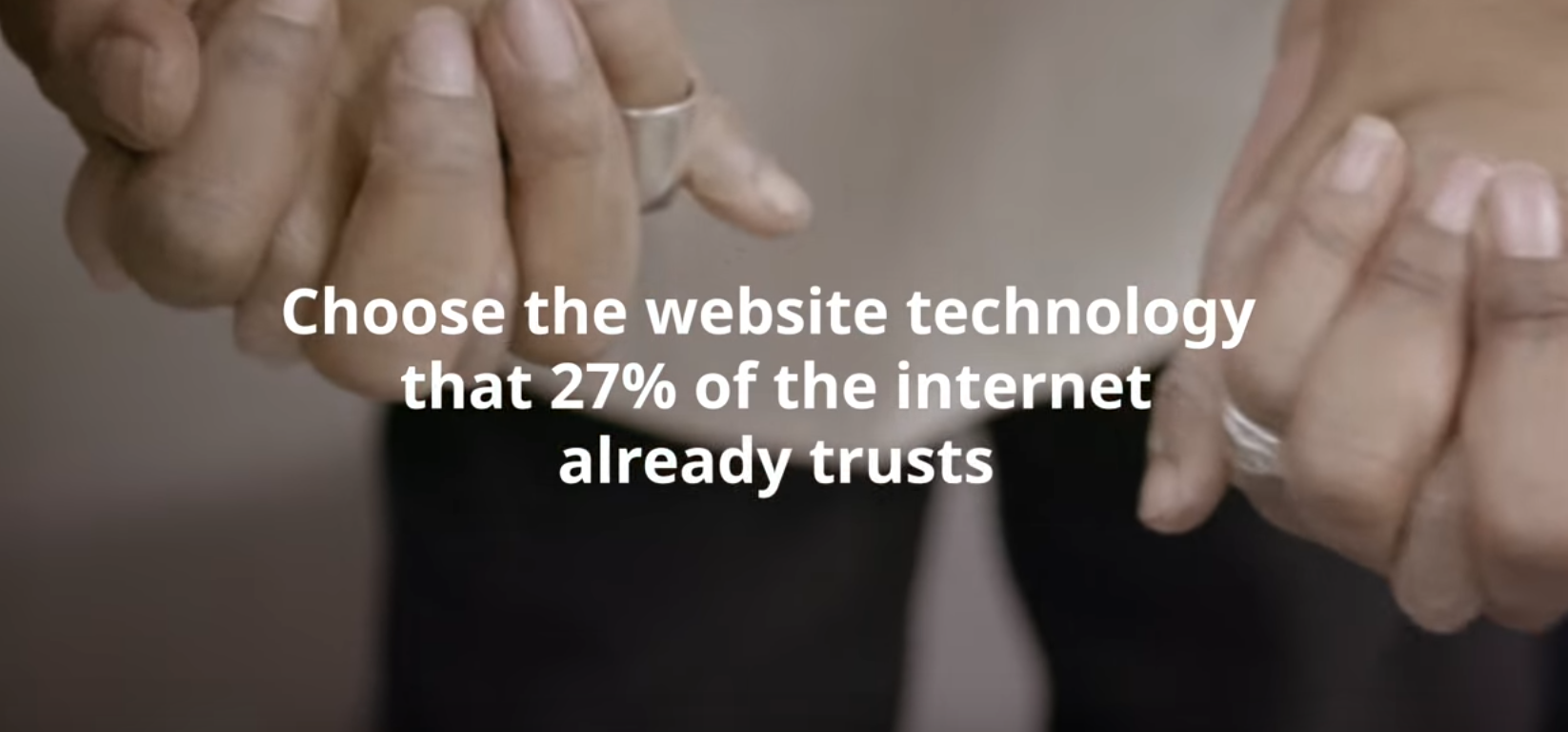In Matt Mullenweg’s 2016 State of the Word, he announced the WordPress Growth Council. The council was created as a think-tank for individuals and organizations in the WordPress community to share ideas on how best to tell WordPress’ story to grow market share.
The Growth Council serves as a collaborative means to combat the more than $300M in advertising spent by competitors like Squarespace and Wix. In the presentation, Mullenweg stated that marketing WordPress would become a higher priority compared to previous years.
WordPress.com’s First TV Ads
Automattic has unveiled five commercials that are being tested in six different television markets. The videos were created earlier this year when a volunteer team of Automatticians visited Detroit, MI, to participate in the Rebrand Detroit project.
Working with Hajj Flemings, founder of Brand Camp University, the team helped launch new sites for nine small businesses over a 48 hour period. The sites that were launched include:
- Art in Motion
- Brix Wine and Charcuterie Boutique
- La Posada
- Red Bag Boutique
- El Salpicon
- Royal Fresh Market
- Mama Coo’s Boutique
- The Garden Bug
- Motor City Java House
The commercials are part of a series called ‘Free to be’ where business owners share what success means to them and the city of Detroit.
Each video displays a WordPress logo in the bottom-left corner of the screen with occasional factoids highlighted across the center. The commercials end with the WordPress logo displayed in the center with the words, Websites, Blogs, and Domains underneath.

The Message in the Commercials Is Unclear
I’ve watched each commercial a few times and my initial reaction is confusion. I don’t know exactly what WordPress.com is trying to sell me. It’s obvious that these people are seeing success with hosting their sites on WordPress.com. But is it because of the tools available or is it because the VIP team or other staff members stepped in and guided them through the process?
Unlike Squarespace’s commercials that showcase the product front and center, these commercials don’t show any of the capabilities of WordPress.com. In one of the videos, the text, “Customizable websites that can change with the times” is displayed. Instead of showing the business owners changing the look of their site with the Customizer, the commercial ends.

In a different video, WordPress’ total market share is used as a selling point. Using this datapoint in a commercial geared towards WordPress.com is unsettling. Eric Mann, a long time WordPress developer, feels the same way:
I have no problem with WordPress.com advertisements on TV or the Radio or elsewhere. They’re great ways for Automattic to build recognition of their product and encourage new signups.
I do have a problem with advertisements conflating WordPress and WordPress.com by subtly suggesting that the ‘27% of the Internet run on WordPress’ is due to Automattic or is somehow because of WordPress.com.
A majority of the 27% or now 28% of the web, according to W3Techs, uses self-hosted WordPress, not WordPress.com.

Self-hosted WordPress and WordPress.com have a symbiotic relationship. Getting into semantics may seem like nitpicking but it’s important to distinguish that they are not the same thing.
The marketing material used in the screenshot above conflates them. Examples like this don’t do anything to alleviate the confusion that exists between WordPress.com and self-hosted WordPress.
I realize I’m not the target market for these ads but they leave me with more questions than answers. Squarespace commercials intrigue me to the point of wanting to check out what the service has to offer. Meanwhile, I don’t have any emotional reaction after watching the WordPress.com commercials.
In the future, I’d like to see a commercial that highlights the tools available on WordPress.com and shows a human using them to quickly edit and change their sites. This is something I think a lot of people can relate to instead of reading text that explains what the service’s capabilities are.
If you were tasked with producing a commercial for WordPress.com, how would you showcase the best of what the service has to offer? Let us know what you think of the commercials in the comments.
I don’t understand. The purpose of the Growth Council is to promote the commercial wordpress.com site, or to promote the WordPress project, including mainly self-hosted sites?